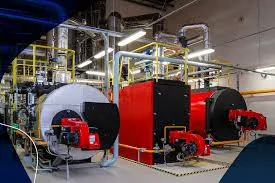
Nov . 23, 2024 14:47 Back to list
steam boiler water treatment
Steam Boiler Water Treatment Ensuring Efficiency and Longevity
Steam boilers are critical components in various industries, providing steam for heating, power generation, and process applications. However, the efficiency and longevity of steam boilers heavily depend on effective water treatment practices. Poor water quality can lead to a range of problems, including scale formation, corrosion, and foaming, which can jeopardize the performance of the boiler and lead to costly repairs or downtime.
Understanding Boiler Water Chemistry
The primary objective of water treatment is to maintain optimal water chemistry within the boiler system. The feedwater used in boilers can contain impurities such as salts, minerals, and organic matter, which, if not managed correctly, result in adverse effects. The treatment process typically involves several key steps softening, clarification, and chemical dosing.
1. Softening Hardness in water is caused mainly by calcium and magnesium ions. These ions can precipitate out and form scale deposits on the boiler heat transfer surfaces. A common method of softening water is ion exchange, where hard water passes through resin beds that replace calcium and magnesium with sodium ions.
2. Clarification This step removes suspended solids and particulate matter that may disrupt the boiler's operation. Techniques include sedimentation, filtration, and the use of coagulants to facilitate the settling of particles.
steam boiler water treatment

3. Chemical Dosing Once the water is treated, chemicals are added to manage pH levels and control corrosion and scaling. Common chemicals include sodium hydroxide to raise pH, phosphates to prevent scale formation, and oxygen scavengers like sodium sulfite to mitigate corrosion.
Monitoring and Maintenance
Continuous monitoring of water quality is crucial for the effective operation of a steam boiler. Regular testing for pH, conductivity, and the concentration of dissolved solids allows operators to make timely adjustments to water treatment processes. Consistent maintenance of the water treatment system, including replacing filters and resin beds, ensures optimal performance.
Conclusion
Effective water treatment in steam boilers is essential for maintaining efficiency and prolonging the equipment's lifespan. By understanding the chemistry of boiler water and employing appropriate treatment methods, industries can reduce the incidence of operational issues, minimize downtime, and enhance overall productivity. Investing in proper water treatment not only safeguards boiler systems but also contributes to a more sustainable operational environment.
-
Oil Fired Hot Water Boilers Sale - High Efficiency & Affordable
NewsJul.31,2025
-
High-Efficiency Commercial Oil Fired Steam Boiler for Industry
NewsJul.30,2025
-
High-Efficiency Biomass Fired Thermal Oil Boiler Solutions
NewsJul.30,2025
-
High Efficiency Gas Fired Thermal Oil Boiler for Industrial Heating
NewsJul.29,2025
-
High-Efficiency Gas Fired Hot Water Boiler for Sale – Reliable & Affordable
NewsJul.29,2025
-
High Efficiency Biomass Fired Hot Water Boiler for Industrial and Commercial Use
NewsJul.29,2025
Related PRODUCTS






















